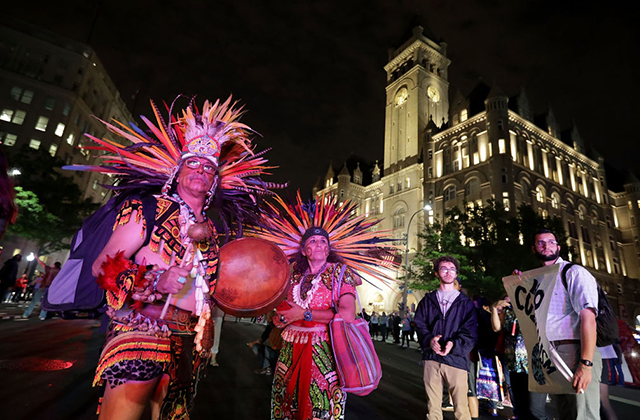The Dakota Access Pipeline put a spotlight on how government agencies handle tribal consultations with regards to infrastructure projects. More specifically, the 1,172-mile long pipeline showed how the process often fails tribal communities.
The water protectors’ cries of, “Mni wiconi,” or, “Water is life,” ultimately did nothing to stop the project, which has begun transporting oil from North Dakota to a terminal in Texas today (June 1).
But the consultation process can improve—at least according to a report the Advisory Council on Historic Preservation (ACHP) released today. It serves as a companion to a previous report by the Departments of Interior and Justice and the Army Corps of Engineers on the same topic.
As the older report mentions, even “the best-written” tribal consultation policy can fail at implementation. Tribes believe that federal agencies don’t treat them as sovereign entities nor do they respect historic treaties that were supposed to dictate U.S.-tribal relationships, according to comments submitted for the report.
In addition, today’s report offers key recommendations:
- Include tribal liaisons in leadership advisory positions at headquarters and regional offices
- Create protocols that require decision makers (not non-decision making staff) to consult with tribal members
- Meet with tribes regularly outside of project consultations
- Improve standard archaeological survey methods to ensure areas of religious or cultural significance are identified during land surveys
Still, all these points are merely suggestions. Federal agencies are not required to implement any, though some have expressed interest, says spokesperson Matt Spangler, in an email to Colorlines. ACHP announced it will begin developing training for federal agencies to help them more effectively consult tribes, though this will also be optional.
As for tribes, many Native opponents to energy projects have been increasingly advocating for tribal consent, not tribal consultation. They want to have the last word over whether energy projects can run through their land.
Find the complete report here.
